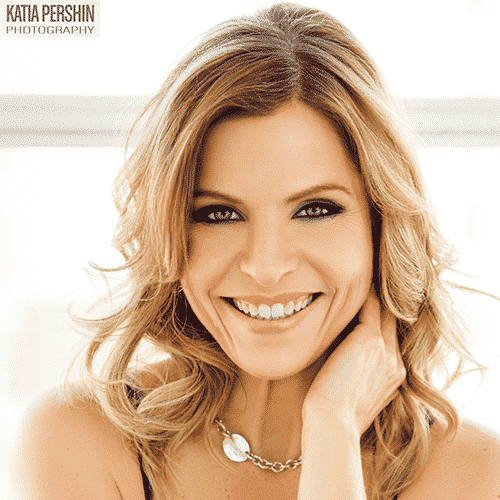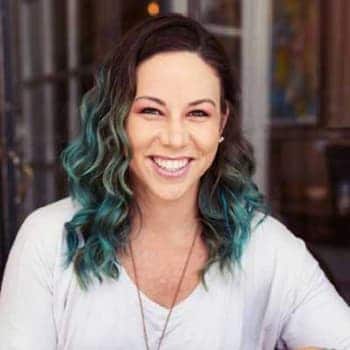I am 14 years old and I am in the back seat of my mom’s Toyota Tercel and I am literally heartbroken. I know my life is forever changing. With tears streaming down my cheeks, I look out the window at my firstrealbest friend and we lock eyes and I tell her that I love her. Our car pulls away and she runs down the street and we wave until we turn the corner. It is done.
We drive the 6 hours to where my dad’s been working for the last six months. What my 14-year old brain doesn’t understand is that my dad is 42 years old and we are in the middle of a recession and he has to make this choice for our family. My brother is devastated. He has been in a committed relationship with his first girlfriend and she lives across the street from us. Moving away from her has broken his heart into a million little pieces and we all feel it. He hardly eats. He refuses to speak. And as hard as this move is for me, I downplay my pain. I can sense the tremendous guilt that my father feels for moving us out of our lives and I don’t want him to feel any worse. I learn to stifle my feelings. I smile and I tell everyone, “I am doing just fine.”

I am 17 years old and it is New Year’s Eve. My parents have asked me to pick them up from a party at 12:30 a.m. I tell a friend that I have the house to myself until then, and we invite people over. We smoke cigarettes. She pours me a tall glass of gin and tonic, and I drink the entire thing. I don’t care that it tastes terrible. I want to impress her. I need to look cool.
I am the girl on the periphery; not pretty enough to be popular; but not plain enough to be “smart”. I never feel like I’m in on the joke. And I am always, always the one to follow; never to lead. Drinking allows me to fit in; it allows me to stop worrying so much about what other people think of me. Especially since everyone thinks I am a slut. I sleep with a lot of guys during high school, and I am ashamed of who I am becoming, but the label keeps me stuck. And I need the booze to allow me to do the things I am ashamed to do. It is a vicious circle.
Treatment Can Be Life Changing. Reach out today.
Whether you are struggling with addiction, mental health or both, our expert team is here to guide you every step of the way. Don’t wait— reach out today to take the first step toward taking control of your life.
When I don’t show up to pick up my parents, they get worried and call a cab. It takes them over an hour to get home and when they finally make it, I am passed out in my bed with a bunch of people downstairs. My dad is furious. As he yanks me out of bed, I know I have broken something between us that can never be repaired. I feel ashamed. And drunk. And sick. And sorry. And I don’t talk about any of this. I don’t talk about it at all.
And for the rest of my high school career, I drink. At first, only on weekends. But by the time I finally graduate, I am drinking on weekdays, as well.
After high school, I attempt university. I choose the one that is in the city we moved away from when I was 14. I am trying to get back to the person I was before I left. But I am no longer that girl. I am a heavy drinker by now, and I never go to class. I flunk out and I move back home. Once again, I am ashamed of who I am and what I have done. I can’t remember ever feeling proud of myself. And the only thing that soothes my shame is booze. Andso I drink.
I move out of my parent’s home and my nightly drinking continues. Living on my own means being able to do whatever I want, whenever I want. My drinking escalates over the next few years and there is a “care and control” charge, where I lose my license for a year. I endure many embarrassing moments that I can never, ever take back. Nights of after hours parties and a 6 month stint ofcocaine use, and too many failed relationships to want to remember and too many bad decisions to be able to forget. Fender benders that are dealt with outside of insurance, parties that get out of hand, arguments and miscommunication and indiscretion. Sex and vomiting in bathrooms at clubs and peeing the bed after long nights of drinking and feeling a sense of doom every single time I wake up and trying to piece together what the hell I’ve done. It is chaos and it isn’t f*cking normal to live like this and yet it is the normal I’ve come to know and I am afraid. I am afraid that the second I admit there is a problem, I will have to change something and that something will be the drinking and there is no way in hell I am going to stop the drinking, and so my life continues. Every day is Groundhog Day. Sure, there are the quiet moments where I am alone, hungover, wondering what the hell I am doing with my life; questioning how on earth I will ever accomplish anything if I keep going this way…wondering who I even am and what I actually want and then I quickly swat those thoughts away as I reach for the phone and call a friend to drink with me. It is always, always easier to just drink.
Until it is just way harder.
On July 29th, 2002, I am having dinner with a friend at a restaurant. I say dinner, but it’s mainly wine. I share all the details in a blog post I wrote, but I got a DUI that night. And it was the rock bottom I needed to stop drinking. I just knew it was the end for me. It was almost a relief. Except that it was the most excruciating pain I have ever endured and every single day, I thought I may as well die if I couldn’t drink. “How the hell am I going to do life without alcohol?!”
I got sober before Facebook or blogs or sober communities of women sharing their stories, and I felt completely alone. I was so ashamed of the label that I refused to wear it. I could barely bring myself to say the word and I certainly wasn’t going to say it to anyone else so I refused any 12 step model and I went a different way. I pretended I was “into health and fitness” in order to hide why I no longer drank. And in the process I learned to love and respect my body in a way I had never known before. Instead of filling my body with thoughts and toxins and people who didn’t deserve to be there, I filled myself up with love and reverence and respect. Until then, I had felt such tremendous shame about who I was and what I’d been through that I never conceived of seeing it as a blessing until I came all the way through. It wasn’t until I shared my story publicly that I heard other women’s voices; the voices that said, “me too,” and for the first time in my life, I felt like I belonged somewhere. I finally felt like I wasn’t just following the crowd but that I was helping to shape it and become part of something greater than anything I could have imagined for myself.
It has been an incredible journey, and I am so grateful for my addiction and for my sobriety and for my recovery. I continue to walk this path because of the amazing women and men who are right here with me, and I am passionate about creating a lifestyle I love; not just one where I don’t drink alcohol. That’s not enough. At the beginning, in those first few days and weeks, maybe. But not if I want to enjoy a full life. So I eat well. I meditate. I move my body daily. I breathe. I spend time in nature. And I connect with others who are on the same journey and who also want to live full lives; not just sober lives. And from someone who has always struggled with appearances, my life has never looked better. It’s by no means perfect and staying sober can be incredibly challenging, but sobriety is at the root of everything I do. And I like who I am. For the first time in my life, I can say that and mean it. And I want the same for others who are struggling.
Because everything we want is on the other side of addiction.
Author: Sarah Robertsis a wellness entrepreneur and the author ofThe 28 Day Kick The Sugar Challengeas well as the founder of the popular blogSarahTalksFood.comand the creator ofThe 6 Week Sugar Freedom eCourse, a 6 week program designed to help people uncomplicate their relationship with food in order to experience greater freedom in their lives.







